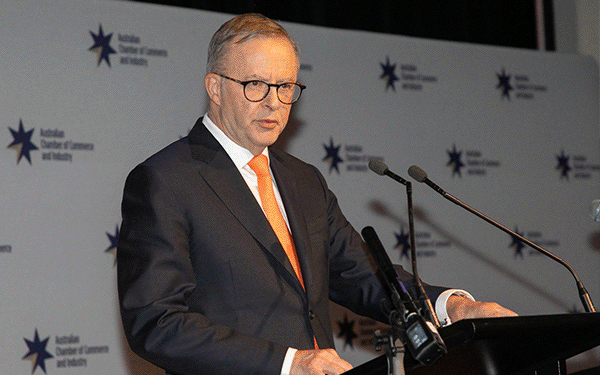Could new workplace laws crush hospitality’s casual employment contracts?

The Business Council of Australia, Minerals Council of Australia, Australian Chamber of Commerce and Industry and Australian Industry Group have condemned the Albanese government’s changes to workplace laws.
In the line of fire in particular was the impact multi-employer bargaining could have. The groups labelled the changes as a “hellishly complex minefield” and called out the Fair Work Commission’s decision last week on Friday compelled three NSW coalmining companies to collectively negotiate workplace agreements with a union.
“What’s alarming about this decision is that it essentially says all of the businesses in any sector can be roped together and subject to the same determination because of these new laws,” BCA chief executive Bran Black said.
The decision impacts Whitehaven Coal, Peabody Energy, and Ulan Coal Mines.
“Businesses should be on edge about this precedent, because it will slash productivity and undermine enterprise-level engagement between employees and employers.”
This looks to be another blow to hospitality businesses as well, with one of the major changes being the inability of employers to contact workers outside normal work hours.
There is also a clamp down on the use of independent contractors, which is designed to provide an easier pathway for casual workers to become permanent.
The FWC would essentially be able to set minimum standards for gig economy employees.
According to Workplace Relations Minister Murray Watt the reforms are designed to “get wages moving again”.
“When we think about cost of living, we need to be thinking about how much people are paying for things, the tax cuts they’re receiving from our government, the energy bill relief they’re being provided with as well,” Senator Watt said. “But what’s just as important is what they’re earning at work. Some of the changes we’ve already made have been assisting to lift people’s wages, make their jobs more secure, to enable them to deal with those cost-of-living pressures.”
In an article for The Australian Ai Group chief executive Innes Willox wrote that unions would weaponise the reforms and employing people would become more difficult.
“Nowhere in this mass of legislative change is a word on how our pathetic productivity performance will be improved. In fact, all of this is anti-productivity,” he wrote.
“Without turning our productivity outcomes around, we condemn ourselves to falling living standards and risk perpetuating high inflation and an elevated cost of living.”
According to ACCI chief executive Andrew McKellar the new laws would “crush productivity”.
“I think there’s also a significant risk that this could mean increases in input costs for some businesses, and of course in some cases that’s going to mean those costs will be passed on to consumers,” he said.
The Liberal party was also on the attack, with opposition employment spokeswoman Michaelia Cash saying, “The Coalition has promised to repeal the right-to-disconnect laws when in government.
“Mr Albanese’s changes to casual employment are designed to destroy casual jobs … For small-business employers in particular, those employing casual workers can no longer rely on their employment contract to determine their employment status.”
Jonathan Jackson, 26th August 2024







